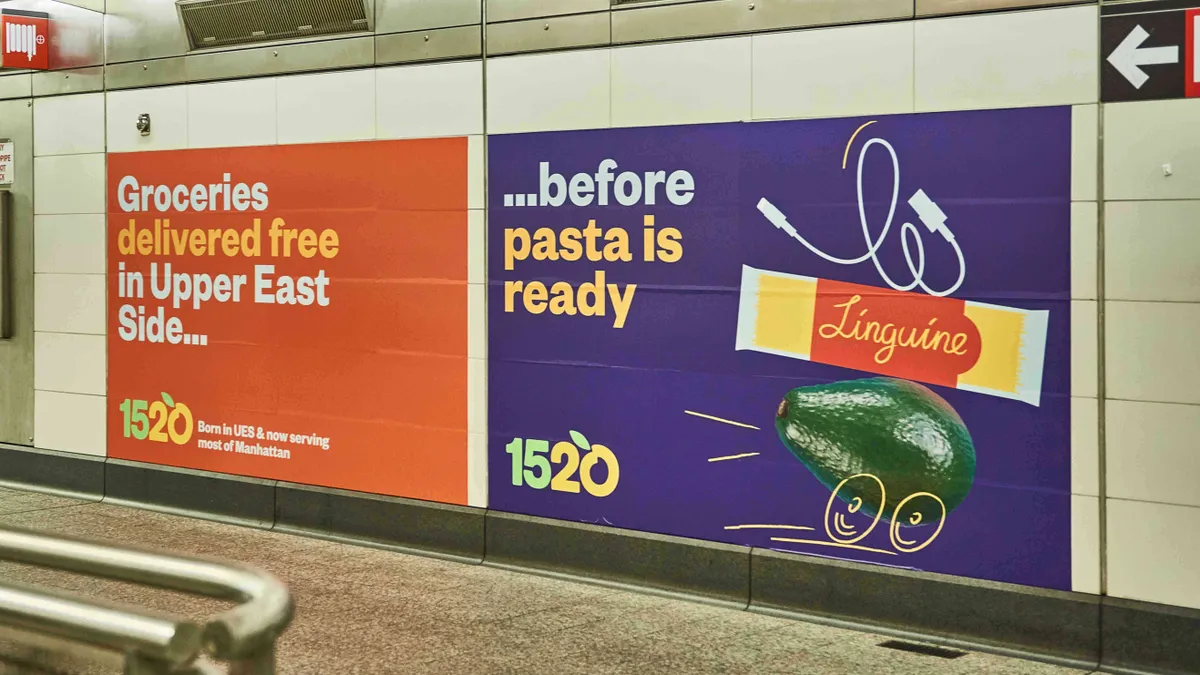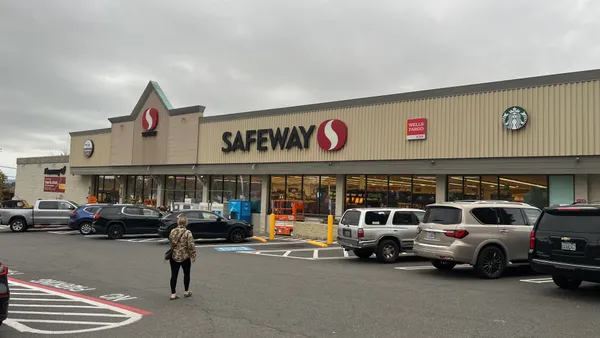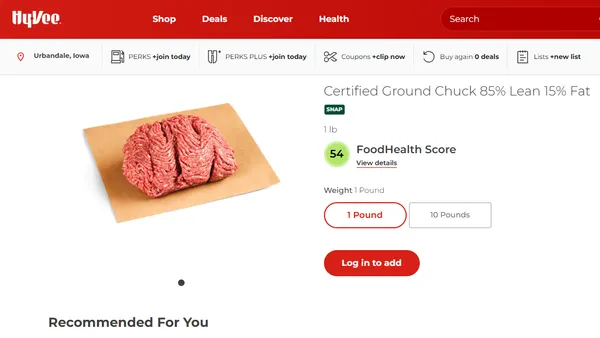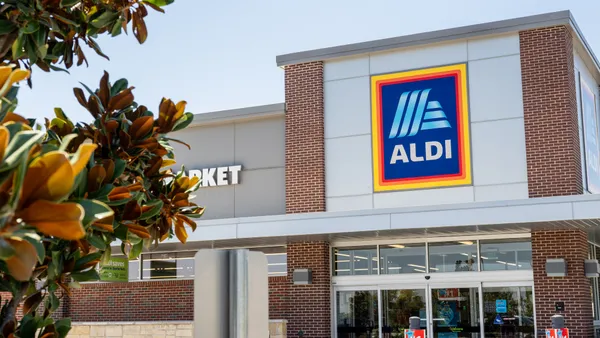Dive Brief:
- The quick-commerce retail space will generate between $20 billion to $25 billion in U.S. retail sales this year, according to a Coresight Research report released on Friday.
- In a consumer survey conducted last month, Coresight found that people who buy groceries for same-day or faster delivery said low or no delivery fees and the price of items are the most important factors to them (60.6% and 53.4%, respectively), while getting the fastest delivery is less important (40.4%).
- As the competition heats up in the instant-needs delivery space, executives from Gopuff and Jokr said during virtual events on Thursday that localization is a key focus of differentiation for them as they grow.
Dive Insight:
The e-commerce boom of 2020 helped support the rise of what Coresight called a "micro-industry" of instant-needs delivery firms. The largest U.S. player in the space, Gopuff, accounts for more than 70% of the U.S. market, per Coresight.
Quick-commerce startups like Gorillas, Buyk and Fridge No More market faster delivery times than Gopuff, typically 15 minutes or less, but Coresight's survey found that consumers value low fees and competitive product pricing more than speed, indicating incremental improvements in speed won't significantly impact customer interest in the space.
Coresight noted that the industry is headed for consolidation. After this happens, the firm expects quick-commerce firms, many of which don't charge delivery fees or order minimums, will begin to implement "reasonable" fees in order to address profitability.
"Following the influx of new entrants, the instant-needs space is looking unsustainably over-supplied and profit-challenged," the report noted. "Consolidation, with some nascent players falling out of the market, looks inevitable given the glut of businesses competing on such similar unique selling points and often on the same turf."
Funding and growth will likely dictate which companies survive and which don't. Funding to date in the vertically integrated instant-needs segment is estimated to be $5.9 billion to date, Coresight noted, with Gopuff accounting for more than half of that amount ($3.4 billion).
Of the six other instant-needs companies currently operating in or coming soon to the U.S. that Coresight looked at, Gorillas and Getir have each raised more than a billion dollars total. Jokr has raised a total of $170 million, followed by Buyk at $46 million and Fridge No More at $16.9 million, per Coresight, which did not have an estimate for 1520, other than to note the company has received unspecified seed funding.
Gopuff is valued at $15 billion, Getir at $7.5 billion and Gorillas at $3 billion, per the report.
Coresight noted that instant-needs companies are leveraging their hyperlocal logistics networks to meet shopper needs — an area that executives from Gopuff and Jokr also pointed to as an advantage and opportunity for growth.
"The name of the game is localization long-term," Daniel Folkman, senior vice president of business at Gopuff, said during a virtual event hosted by Coresight.
For Gopuff, which has almost 600 MFCs, Folkman said selling beloved local products not only appeals to customers but also provides new opportunities for small brands to advertise and build their presence locally and then nationally. For Gopuff, that helps it grow its ads business — a potentially lucrative part of the company, Folkman said.
Jokr, which provides 15-minute delivery in several New York City neighborhoods, aims to cut out distributors and work directly with local brands as it looks to democratize the supply chain, Aspa Lekka, the company's founder and chief operating officer, said during a virtual panel hosted by The Center for Retail Transformation at George Mason University School of Business. Along with working with local suppliers, having real-time replenishment is also a top priority, Lekka said.












